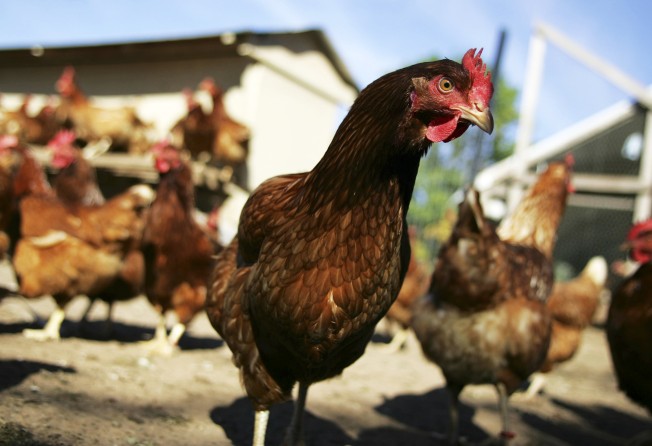
Solution found for US chicken and egg problem

They are cock-a-hoop at Reuters over their exclusive story about a problem in the chicken breeding industry in the US. Apparently a key breed of rooster has a genetic issue that is reducing its fertility leading to a shortage of chickens and rising prices.
The breed, Aviagen Group's standard Ross male, is sire through its offspring to as much as 25 per cent of the chickens raised in the US for slaughter. Aviagen provides breeding stock - hens and roosters - to chicken producers, which then breed the birds. A hitherto undisclosed change it made to its Ross breed's genetics has made the birds sensitive to being overfed.
As the aptly named Mike Cockrell, who works for one of the big producers explained, "We fed him too much. He got fat. When he got big, he did not breed as much as he was intended to." The breed has been tweaked and results have been favourable, but they are not crowing about them yet.
Rose is CEO
We were somewhat carried away in yesterday's piece on female chief executives in Hong Kong listed companies.
Despite a nagging doubt we went along with a report by Qlick that asserted Hong Kong had no female chief executives running listed companies.
However, we overlooked Rose Lee Wai-mun, who has been vice-chairman and chief executive at Hang Seng Bank since May 2012.
Indeed her first day at work was documented by Lai See since it was enlivened by a welcoming ceremony by the staff, at which she was given 11 roses. Firstly because her name is Rose, and 11 to coincide with the bank's stock-code number. How could we forget such an event? As the Koreans say: "Even the monkey falls out of the tree."
The hand of God?

The conventional wisdom, according to a Bloomberg report, is that a defeat for Brazil would be good for financial markets since it would dent the re-election prospects in October of President Dilma Rousseff whose policies are seen to be responsible for the country's current stagflation.
However, according to Geoffrey Dennis, the head of emerging-market strategy at UBS, the defeat was so crushing that it could leave consumer and investor confidence in tatters even if Rousseff doesn't get elected in October, and nullify the prospect of a more market friendly administration.
As ever in the wake of an event of such global significance, people have taken to Twitter to reflect their wit and wisdom. This is where our photo is taken from. And while we're on this topic, What's the difference between England and a teabag? A teabag stays in the cup for longer.
HSBC tops the cost cuts
The best jobs in banking are to be found in the US, at least according to research by Morgan Stanley. By way of support for this view it has come up with a chart that compares cost to revenue ratios for the biggest banks which shows that US banks appear to have their costs under control compared with European banks.
Nomura had the highest ratio in 2013 at 85 per cent followed by RBS at 79 per cent and Barclays at 72 per cent. Goldman Sachs had the highest ratio for a US bank at 70 per cent followed by JP Morgan at 60 per cent, and Citi and Bank of America Merrill Lynch at 59 per cent.
However, the best bank in this respect was none other than our own HSBC at 53 per cent. There was clearly a point to all that axe swinging by Stuart Gulliver.
Have you got any stories that Lai See should know about? E-mail them to [email protected]